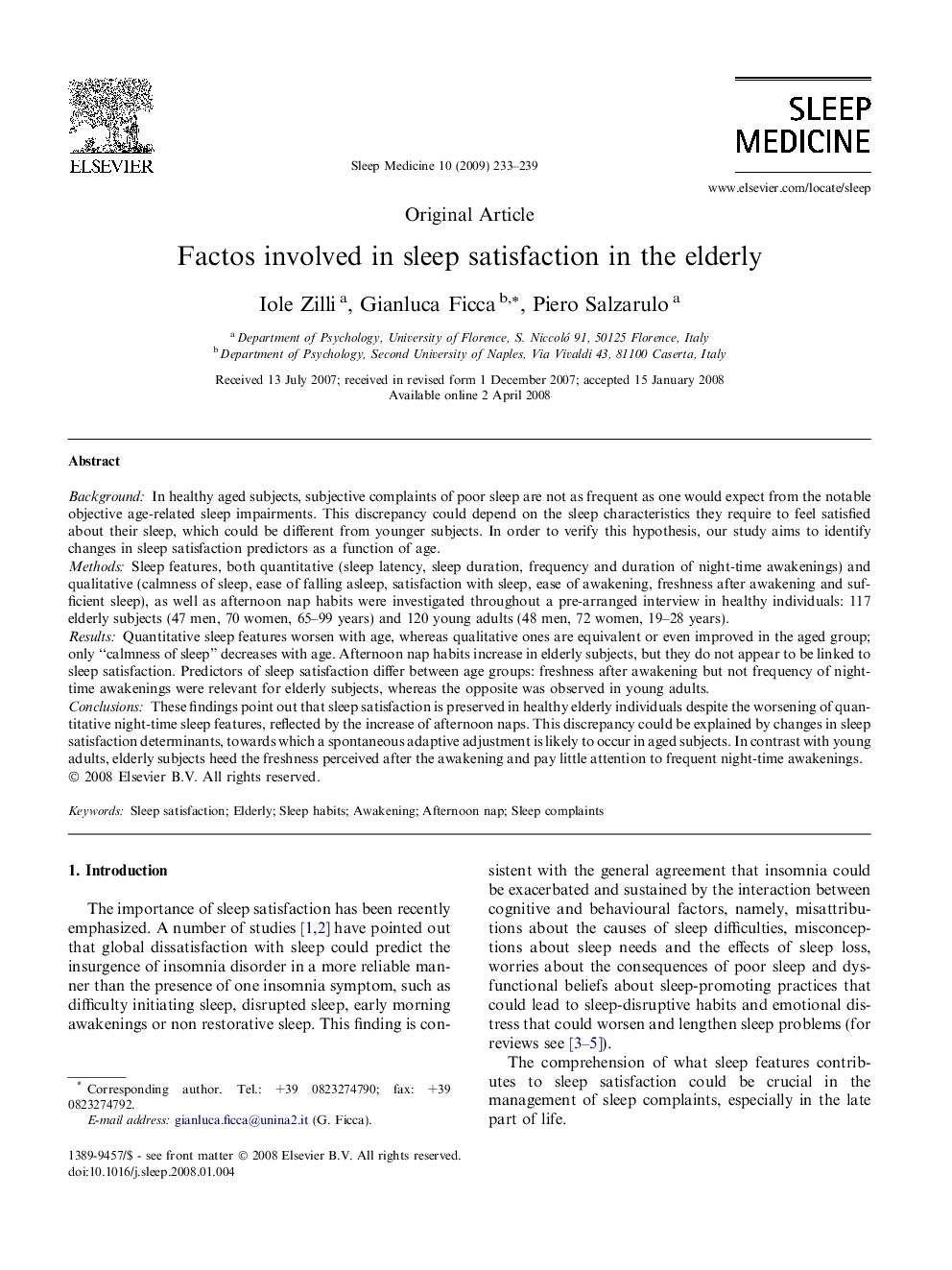| Article ID | Journal | Published Year | Pages | File Type |
|---|---|---|---|---|
| 3177359 | Sleep Medicine | 2009 | 7 Pages |
BackgroundIn healthy aged subjects, subjective complaints of poor sleep are not as frequent as one would expect from the notable objective age-related sleep impairments. This discrepancy could depend on the sleep characteristics they require to feel satisfied about their sleep, which could be different from younger subjects. In order to verify this hypothesis, our study aims to identify changes in sleep satisfaction predictors as a function of age.MethodsSleep features, both quantitative (sleep latency, sleep duration, frequency and duration of night-time awakenings) and qualitative (calmness of sleep, ease of falling asleep, satisfaction with sleep, ease of awakening, freshness after awakening and sufficient sleep), as well as afternoon nap habits were investigated throughout a pre-arranged interview in healthy individuals: 117 elderly subjects (47 men, 70 women, 65–99 years) and 120 young adults (48 men, 72 women, 19–28 years).ResultsQuantitative sleep features worsen with age, whereas qualitative ones are equivalent or even improved in the aged group; only “calmness of sleep” decreases with age. Afternoon nap habits increase in elderly subjects, but they do not appear to be linked to sleep satisfaction. Predictors of sleep satisfaction differ between age groups: freshness after awakening but not frequency of night-time awakenings were relevant for elderly subjects, whereas the opposite was observed in young adults.ConclusionsThese findings point out that sleep satisfaction is preserved in healthy elderly individuals despite the worsening of quantitative night-time sleep features, reflected by the increase of afternoon naps. This discrepancy could be explained by changes in sleep satisfaction determinants, towards which a spontaneous adaptive adjustment is likely to occur in aged subjects. In contrast with young adults, elderly subjects heed the freshness perceived after the awakening and pay little attention to frequent night-time awakenings.
